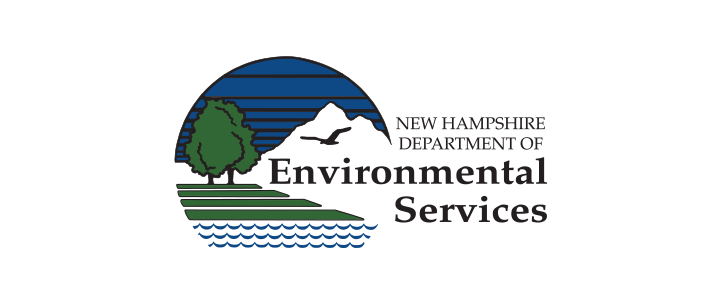
Emergency Preparedness: Bulk Water
Bulk water is trucked-in potable drinking water that is used to help a public water system (PWS) maintain an adequate supply during a water emergency. Bulk water is a short-term solution for PWSs and may be necessitated by a drought or another water shortage to ensure that water customers still have access to clean water for drinking and sanitation purposes. See additional information from the Guidelines for Emergency Bulk Water Supply.
There are rules that ensure that bulk water deliveries meet the same water quality standards required of a typical PWS.
The bulk water rules are intended for public water suppliers and bulk water haulers. For private wells that may be struggling, please note that bulk water deliveries are not recommended; but, can be an option during an emergency. Be aware that it is not legal to put any water in a well except water from an approved NHDES source transported in a water tank truck that is solely used for potable water. Further details may be found in Water Supply Options for Homeowners on Residential Wells During Drought and Emergency Bulk Water for Public Water Systems. If a private well owner is thinking of requesting bulk water, they should first consider applying for assistance through the NHDES Drought Assistance Program.
Rule 1: The bulk water must come from an approved source.
An approved source is finished water from a community water system (CWS) or a NHDES-approved bottled water source. Non-CWS groundwater sources may be used if they’ve been inspected, meet sampling requirements and are approved by NHDES.
NHDES has a list of approved bulk water providers and haulers on our website. This list does not constitute an endorsement, nor is it exhaustive. Bulk water haulers interested in being on this list may contact NHDES at (603) 271-0867.
Rule 2: The hauler must follow proper transportation, sanitation, handling and delivery methods.
Prior to loading a tank with bulk water, the tank and equipment need to be cleaned and disinfected using methods from Env-Dw 304.06 Tank and Water Sanitation Practices.
If a tank was previously used to carry petroleum, toxic or non-food products, it must be properly sanitized prior to filling the tank with bulk water by rinsing and flushing all debris from the tank, and disinfecting the tank by either using a chemical sanitizer or ozone solution. Please review the bulk water rules for disinfection practices.
At the time of the delivery, a certified operator must be onsite to measure the free chlorine residual and verify the water chemistry is within acceptable limits. NHDES provides a list of New Hampshire certified drinking water operators.
Rule 3: Notify NHDES.
The PWS must notify NHDES of a delivery within two business days by completing the bulk water notification form.
We appreciate your cooperation following these rules to ensure the bulk water delivery process remains safe and effective. Keep in mind that bulk water is a short-term fix and should not be used as a long-term solution. Be aware of underlying conditions that are causing the need for bulk water by discussing any issues with your sanitary surveyor at NHDES by calling (603) 271-2513. For more information on bulk water, contact Stephanie Nistico at stephanie.nistico@des.nh.gov or (603) 271-0867.




